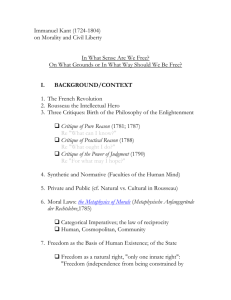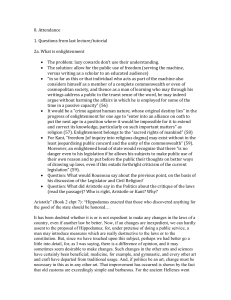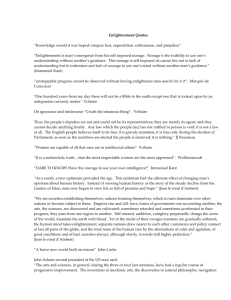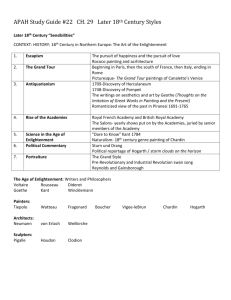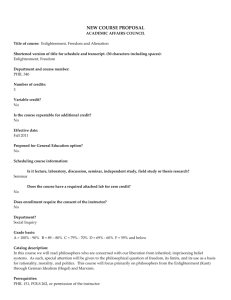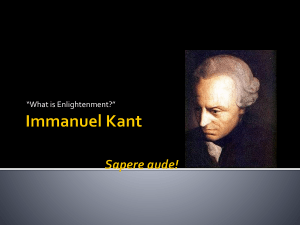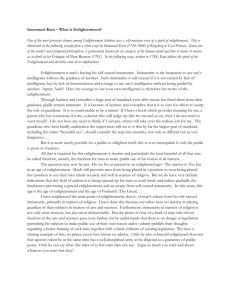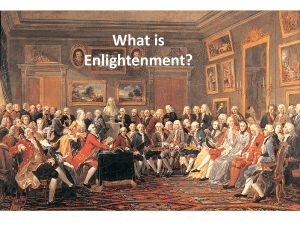Sean 19 An Analysis of Enlightenment
advertisement
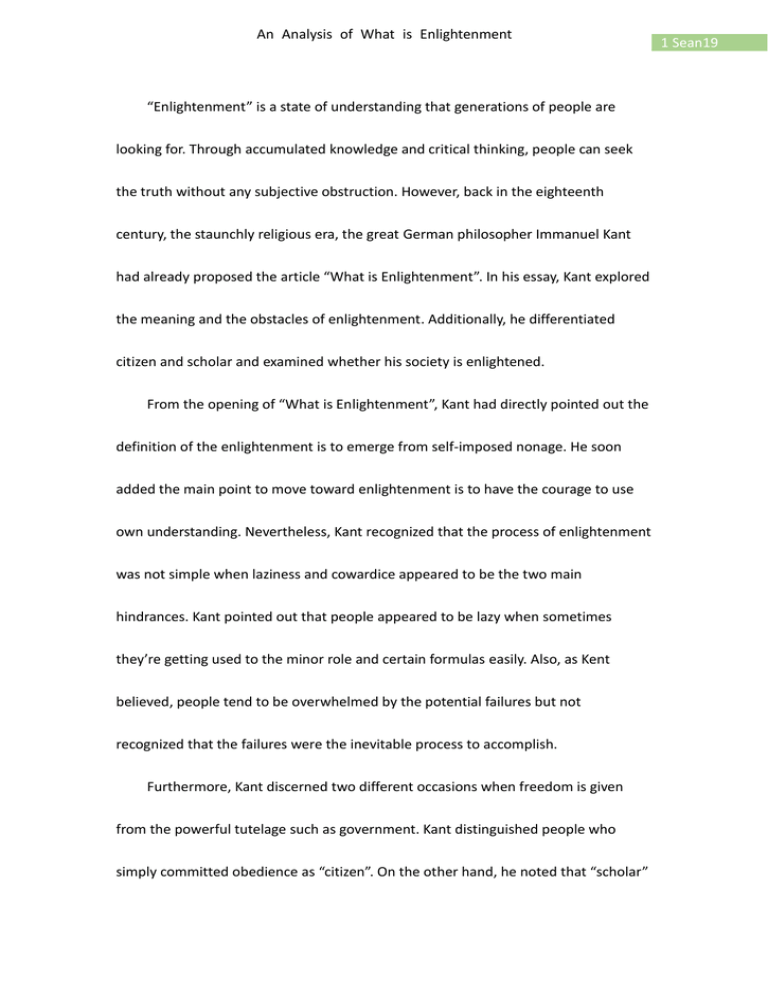
An Analysis of What is Enlightenment “Enlightenment” is a state of understanding that generations of people are looking for. Through accumulated knowledge and critical thinking, people can seek the truth without any subjective obstruction. However, back in the eighteenth century, the staunchly religious era, the great German philosopher Immanuel Kant had already proposed the article “What is Enlightenment”. In his essay, Kant explored the meaning and the obstacles of enlightenment. Additionally, he differentiated citizen and scholar and examined whether his society is enlightened. From the opening of “What is Enlightenment”, Kant had directly pointed out the definition of the enlightenment is to emerge from self-imposed nonage. He soon added the main point to move toward enlightenment is to have the courage to use own understanding. Nevertheless, Kant recognized that the process of enlightenment was not simple when laziness and cowardice appeared to be the two main hindrances. Kant pointed out that people appeared to be lazy when sometimes they’re getting used to the minor role and certain formulas easily. Also, as Kent believed, people tend to be overwhelmed by the potential failures but not recognized that the failures were the inevitable process to accomplish. Furthermore, Kant discerned two different occasions when freedom is given from the powerful tutelage such as government. Kant distinguished people who simply committed obedience as “citizen”. On the other hand, he noted that “scholar” 1 Sean19 An Analysis of What is Enlightenment is the part of people who argued by using rational evidence without any violation. Moreover, Kant stressed that people, including citizen and scholar, should work on creating the artificial unanimity in order to meet public goals. Last but not least, Kant identified his era as the age of enlightenment rather than enlightened age. He stated that some people were reasoning without external guidance, and the hindrance that limited the process of enlightenment was slowly reducing. Despite the ages of the article, I can still find some of Kant’s standpoints are valid and applicable in nowadays. For instance, Kant’s ideas on laziness and cowardice are quiet pertinent in the modern society. Whereas such ideas awkwardly matched people, especially my parents’ generation, views toward my generation. They often called us “The Strawberry Generation”, indicating that since my generation lived peacefully throughout our life, we lack of strong mental qualities to deal with potential stress and unknowing obstacles. In the article of “What is Enlightenment”, Kant had explicitly addressed the definition of enlightenment, which is getting away from self-imposed nonage. Kant had not only cautioned the attitudes of laziness and cowardice but also analyzed the difference between citizen and scholar. He also applied his era to examine whether his society met the condition of enlightenment. Although the article was published more than a century, some of its idea can still enlightened modern human being. 2 Sean19 An Analysis of What is Enlightenment References 1. Kant, Immanuel. What is Enlightenment? . Trans. Mary C. Smith. Cambridge Edition of the Collected Works of Immanuel Kant: Practical Philosophy. Columbia University, n.d. Web. 13 December, 2015. http://www.columbia.edu/acis/ets/CCREAD/etscc/kant.html 3 Sean19
